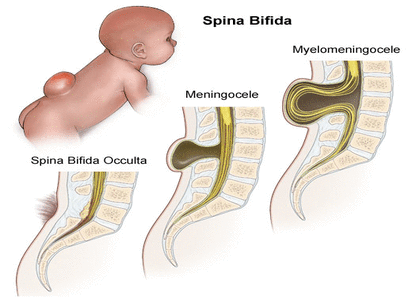- Home
- Editorial
- News
- Practice Guidelines
- Anesthesiology Guidelines
- Cancer Guidelines
- Cardiac Sciences Guidelines
- Critical Care Guidelines
- Dentistry Guidelines
- Dermatology Guidelines
- Diabetes and Endo Guidelines
- Diagnostics Guidelines
- ENT Guidelines
- Featured Practice Guidelines
- Gastroenterology Guidelines
- Geriatrics Guidelines
- Medicine Guidelines
- Nephrology Guidelines
- Neurosciences Guidelines
- Obs and Gynae Guidelines
- Ophthalmology Guidelines
- Orthopaedics Guidelines
- Paediatrics Guidelines
- Psychiatry Guidelines
- Pulmonology Guidelines
- Radiology Guidelines
- Surgery Guidelines
- Urology Guidelines
Two babies with spina bifida treated while still in womb

In a first of its kind operations in the UK, the surgeons at the London's University College Hospital have successfully operated on two babies with spina bifida while still in the womb.
Spina bifida is a condition that develops during pregnancy when the bones of the spine do not form properly, creating a gap that leaves the spinal cord unprotected. It can cause a baby's spinal fluid to leak and put brain development at risk, potentially leading to long-term health and mobility problems.
During the procedure, an incision is made in the womb in a precise location to access the baby's spine and stitch closed the gap caused by spina bifida.
The condition is usually treated after birth, but research shows repairing the baby’s spine earlier can stop the loss of spinal fluid and lead to better long-term health and mobility outcomes.
The two operations were carried out by a 30-strong team, coordinated by UCL's Professor Anne David.
The surgery team from UCLH and the Great Ormond Street Hospital previously traveled to Belgium to train at a facility in Leuven, where more than 40 such operations have been carried out.
The roll-out of the pre-birth surgery in the UK comes after a major US trial confirmed the health and mobility benefits of the procedure. That trial showed a 50% reduction in the need to have shunts inserted in the brain to drain fluid, a procedure that carries long-term complications.
Brain and motor functioning are improved for non-shunted children, researchers said.
Children in the US study were also more independent after the surgery, Prof David said.
"There were some children who had grown up following fetal surgery who were walking and you wouldn't expect them to be walking if they hadn't had it," she said.
"So it's important to be able to offer the surgery to patients here in the UK."
The surgery, which takes some 90 minutes, carries a risk of premature labor but less invasive keyhole methods are being explored.
"We put the mum on some drugs that help relax them, but there is still a risk," Prof David said.
She said a "foetoscopic" approach is being developed with the hope this will further minimize maternal complications.
The surgeries will be available for suitable patients through the newly established Centre for Prenatal Therapy at UCLH and GOSH, made possible by funding of £450,000 from the hospitals' charities.
"These vital funds have provided training for the surgical team and will fund surgery for the first 10 patients," UCLH's clinical director for women's health Professor Donald Peebles said.
Frankie Lavis, from Plymouth, became the first British baby to undergo the revolutionary surgery in Belgium in 2013.

Disclaimer: This site is primarily intended for healthcare professionals. Any content/information on this website does not replace the advice of medical and/or health professionals and should not be construed as medical/diagnostic advice/endorsement or prescription. Use of this site is subject to our terms of use, privacy policy, advertisement policy. © 2020 Minerva Medical Treatment Pvt Ltd